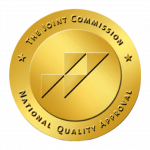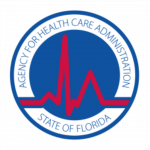After completing a detox and addiction rehabilitation program, what is next? Rehab is a safe space that helps those struggling with addiction stay sober. There are professionals when you need the support groups, therapy, although once you leave, you may be left feeling uneasy.
Recovery from substance abuse isn’t over after initial detox and treatment. Many people feel a large mix of emotions when leaving treatment including excitement, anxiety, and fear. Of course, it is exciting to be home and enjoy time again with family and friends. However, triggers and friends who are still living an addictive lifestyle can have a large impact on your sobriety.
There are many strategies and ways to help yourself stay sober. Finding sober friends and a strong support system can be a vital part of maintaining sobriety.
Rid Yourself of Toxic Connections
After leaving treatment and recovery, you may begin to realize many of your past relationships and friendships are unhealthy and centered around drugs. Being around people who are still using drugs or alcohol is not safe for someone who is newly sober.
Some people choose to change their phone numbers and delete any unhealthy contacts. It may be hard to come to terms with, but try to direct your focus on the healthy supportive relationships you do have. If the people in your life can’t make small transitions or sacrifices when around you, that relationship may not be a healthy or supportive one.
Find the Right Support Group
It can be challenging to make new sober friends, especially without the focus on drugs and alcohol like you may be used to. There are many support groups available: Alcoholics Anonymous, Narcotics Anonymous, Celebrate Recovery, SMART Recovery, and more.
These groups are made up of people who are going through similar experiences that you can connect with. Furthermore, these groups have members who have successfully been sober for years that can share wisdom and encouragement. Finding the right fit for you can offer you support, new friendships, and even a sponsor. A sponsor can be a great support system, and help you continue to stay on track with your sobriety goals.
Reconnect with Family
Many people who struggle with addiction find that they’ve distanced themselves from family. They may have even burned bridges due to putting their addiction first.
Slowly rebuilding healthy relationships with family members can be a great support. Plan a sober activity for your family. For example a beach day, bowling, board game night, or a BBQ.
If your family has problems with drinking or drugs, focus on spending time with family members who are sober or are willing to be sober to support you. If it helps, try writing a list of the family members you can count on for encouragement.
Sober Living Opportunities
Some clients, when leaving an initial rehab stay, may feel intimidated and not ready to be on their own. For these people, a sober living home can fill the gap. Sober living provides more time to build healthy habits and structure. They also provide additional time to develop more lasting support resources and tools.
Oftentimes, people who have struggled with substance abuse have no structure, discipline, or healthy habits. Sober living homes offer strict rules, responsibilities, and more. Additionally, everyone who resides in sober living has the goal of sobriety in common. This camaraderie can help foster healing and build healthy relationships.
Alumni Programs and Events
Many addiction programs offer a form of aftercare in the form of alumni programs. At Harm Reduction Center in Boynton Beach, Florida we also offer aftercare services. These programs help newly sober individuals by keeping them connected with others who are on the path to recovery. This can also help them to stay in touch with staff that is knowledgeable and supportive.
If you’re new to sobriety, definitely consider some sort of program to follow up on initial treatment and rehab.
Continuing Outpatient Counseling
Ongoing outpatient counseling can also be important for staying on track. Substance abuse disorder is physical and mental. Meaning working on problematic thought patterns and behaviors can be crucial for long-term success.
Harm Reduction Center offers ongoing outpatient counseling for clients who have completed initial treatment. This includes individual counseling sessions, to continue working on developing better coping and life skills. This work can be so helpful for dealing with temptation and triggers.
Remember that recovery is something you work at every day. It does get easier as you continue to build the foundation, skills, and support you need. If you or a loved one needs addiction services, contact us at Harm Reduction Center, in Boynton Beach, Florida.














